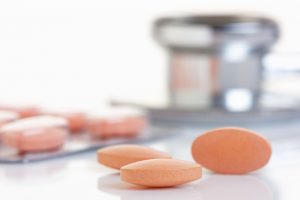 Cholesterol-lowering statins may disrupt muscle cell function, causing muscle pain, stiffness, and cramps. Statins are a popular mode of treatment for cholesterol, but many patients who take them experience muscle pain, stiffness, cramps, or weakness even without any damage to the muscle.
Cholesterol-lowering statins may disrupt muscle cell function, causing muscle pain, stiffness, and cramps. Statins are a popular mode of treatment for cholesterol, but many patients who take them experience muscle pain, stiffness, cramps, or weakness even without any damage to the muscle.
These side effects can negatively affect a person’s quality of life, along with their ability to carry out daily tasks. Symptoms can become so bad that patients may even stop taking the medication, despite the fact that it helped curb their cholesterol levels, thus increasing their risk of heart-related complications.
Advertisement
Co-senior author Frans Russel said, “Adverse drug effects, like those of statins and many other drugs, have been linked to mitochondria — the cell’s powerhouses — though the exact mechanisms are often unknown. This research leads to several opportunities to synthesize new classes of cholesterol-lowering drugs without the unwanted muscle effects, as well as the development of new avenues to counteract these effects, both of which we are currently investigating.”
Statins exist in the body in two forms: acid and lactone. Statins are administered in their acid form, which prevents the liver from producing cholesterol. From this, they turn into lactone, which has no therapeutic effects on the body.
The researchers did find that lactone unintentionally interferes with a mitochondrial pathway that produces the cell’s energy currency – ATP. In muscle cells of mice, lactones were found to be three times more disruptive to mitochondrial function than the acid form. The findings could be confirmed through muscle biopsies in patients who experienced side effects from taking statins.
Russel added, “Further independent studies are needed on the effects of the different statins on mitochondrial function and to indicate the usefulness of complex III activity as a predictive marker for statin-induced myopathies. Interindividual differences in the enzymatic conversion of the acid into the lactone form could be an explanation for the differences between patients in susceptibility for statin-induced muscle pain.”
The researchers aim to improve statins without impacting the muscles. In their study, they were able to reduce lactone’s effect, giving hope that statin side effects could be prevented in the future.
Statins affect energy production in muscles
In an alternative study, researchers found that statins could impede on the energy production in muscles, leading to muscle pain. Professor Flemming Dela said, “A well-known side effect of statin therapy is muscle pain. Up to 75 percent of the physically active patients undergoing treatment for high cholesterol experience pain. This may keep people away from either taking their medicine or from taking exercise – both of which are bad choices. We have now shown that statin treatment affects the energy production in muscles. We are working on the assumption that this can be the direct cause of muscle weakness and pain in the patients.”
Advertisement
“The new study is the basis for a large planned research project, where we will focus broadly on patients undergoing statin treatment. We will look at statin consumption from a medical point of view, and will also investigate the media’s influence on patients’ acceptance or rejection of statins as a treatment option. Many contradictory views find their way into the public forum, and it can be difficult for patients to distinguish between fact and fiction,” continued Prof. Dela.
Tips to improve your cholesterol naturally
Although statins are effective for lowering cholesterol, lifestyle habits can also work to improve your cholesterol numbers and help further reduce your risk of heart-related complications. Tips to improve your cholesterol naturally include:
- Exercise regularly
- Lose some weight
- Take a look at your genetics – sometimes cholesterol issues are inherited
- Promote good gut bacteria with probiotic-rich foods
- Reduce stress
- Quit smoking
- Reduce your intake of dietary saturated fats
- Limit your intake of simple carbohydrates
- Keep alcohol consumption to a minimum
By following these tips, you can have greater success in managing your cholesterol levels.
